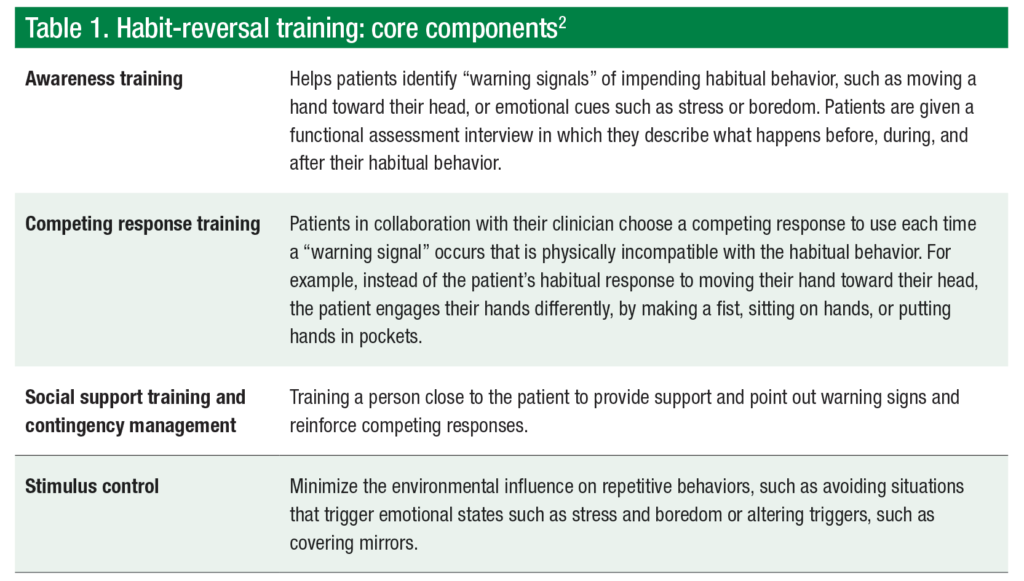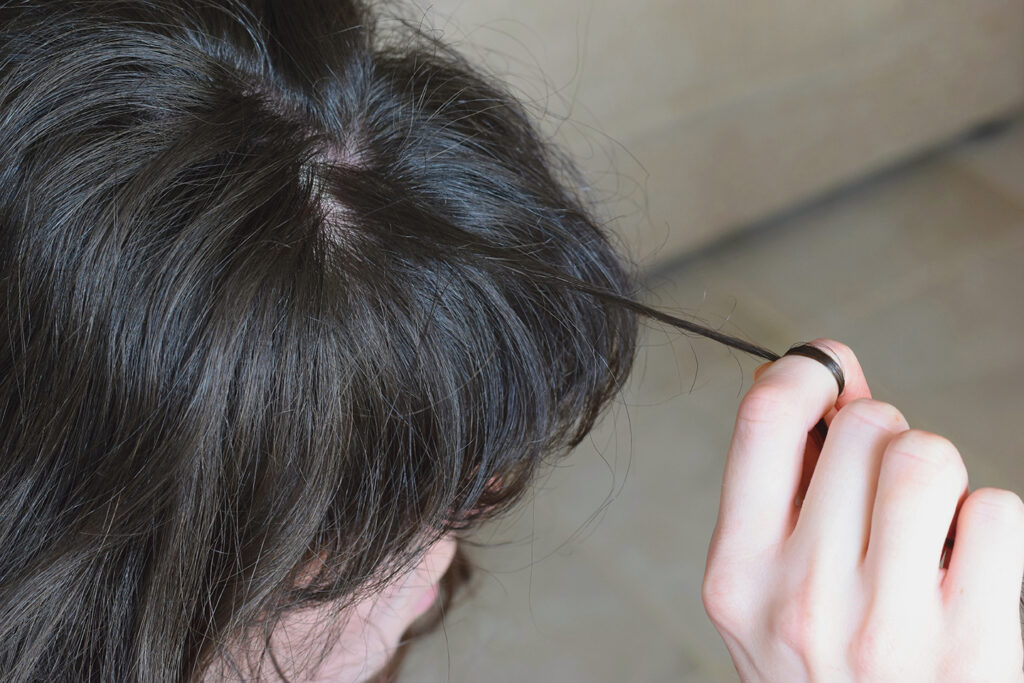By Mary Beth Nierengarten | Reviewed by Katlein França, MD, PhD and Rajani Katta, MD
Dermatologists are on the front lines of care for many patients who have conditions involving psychological disorders. Among those that affect the skin are trichotillomania and excoriation disorders, repetitive behavioral disorders classified as types of Obsessive-Compulsive & Related Disorders in the Diagnostic and Statistical Manual of Mental Disorders, Fifth Edition (DSM-5).1,2
The prevalence of these disorders varies, but recent estimates suggest it may be higher than previously known. A 2018 study of nearly 5000 college students found that about 12% met diagnostic criteria for these disorders and almost 60% reported engaging in these behaviors but did not yet meet diagnostic criteria.3

Dermatologists are usually the first specialists that patients with these disorders reach out to for help, according to Katlein França, MD, PhD, a Clinical Assistant Professor in the Department of Dermatology and Cutaneous Surgery and the Department of Psychiatry and Behavioral Sciences at the University of Miami Miller School of Medicine in Florida. “It is important for dermatologists to be aware of the different treatment approaches and that these patients tend to respond better to integrative treatments,” she said.
Among the integrative treatment approaches is habit-reversal training, a behavioral approach that Dr. França has written about extensively and is trained in. It is often used in combination with medications, amino acid supplements, and other psychotherapy methods. Dr. França emphasized that choosing the type of treatment approach will depend on each patient’s needs and therefore relies on an individualized treatment strategy.
So what is habit-reversal training, and what do dermatologists need to know about how and when to use it?
Habit-reversal training
The foundation on which habit-reversal training is based is helping patients increase their awareness of their harmful habits and training them to develop neutral habits to replace bad ones, explained Dr. França.
Table 1 lists core components of the treatment, first developed by Azrin in the 1970s.4

Although the approach can be used in both children and adults, Dr. França said that it may be challenging to use in children younger than 5 years of age because the technique does require some cognitive awareness and motivation is essential.
Should dermatologists treat or refer?
Although habit-reversal training is a well-established technique, Dr. França emphasized that few practicing dermatologists are aware of it and not many professionals are trained to perform it. Most clinicians practicing it currently are psychologists, she said.

Rajani Katta, MD, a dermatologist on clinical faculty at the Baylor College of Medicine, Houston, Texas, and the McGovern Medical School, Houston, also said that most dermatologists will refer their patients to a trained professional specializing in behavior medicine. “While the technique is considered easy to learn, it does take time to teach and train patients to use, “she said, emphasizing that finding and referring to an expert may also take some time despite the growing number of specialists—particularly at academic medical centers and pediatric hospitals—becoming more aware of the problem.
Underscoring the strong evidence for the benefit of habit-reversal training used in conjunction with standard treatment to treat skin diseases affected by repetitive behaviors, Dr. Katta cited other benefits including its low cost, and low risk, and simplicity. “Importantly, it empowers patients to actively participate in the treatment of their skin disease,” she said. Unfortunately, she said, it is an underutilized technique.
Resources
- Expert Consensus Treatment Guidelines: Body-Focused Repetitive Behaviors. The TLC Foundation. 2016. https://www.bfrb.org/storage/documents/Expert_Consensus_Treatment_Guidelines_2016w.pdf
- Body Focused Repetitive Behaviors. PsychologyTools. https://www.psychologytools.com/professional/problems/body-focused-repetitive-behaviors/
- Morris SH, Zickgraf HF, Dingfelder HE, et al. Habit reversal training in trichotillomania: guide for the clinician. Expert Review of Neurotherapeutics 2013;13(9):1069-1077. https://www.tandfonline.com/doi/full/10.1586/14737175.2013.827477
- Habitaware (App) https://habitaware.com/
References
- França F, Kumar A, Castillo D, et al. Trichotillomania (hair pulling disorder): clinical characteristics, psychosocial aspects, treatment approaches, and ethical considerations. Dermatol Ther. 2019;32:e12622.
- Rodriguez T. Habit reversal training for trichotillomania, excoriation disorder, and itch. Dermatology Advisor. January 9, 2020.
- Houghton DC, Alexander JR, Bauer CC, et al. Body-focused repetitive behaviors: more prevalent than once thought? Psychiatry Res. 2018;270:389-393.
- Azrin HN, Nunn RG. Habit-reversal: a method of eliminating nervous habits and tics. Behav Res Ther. 1973;11:141-149.


